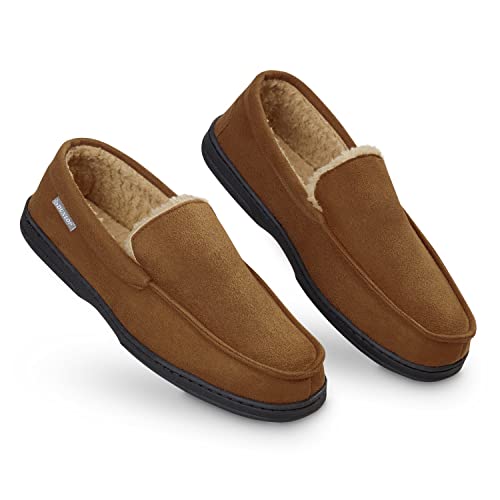Yes, there are designated slippers for diabetics
Diabetes is a condition that affects millions of people worldwide. One of the common complications of diabetes is peripheral neuropathy, which can cause loss of sensation in the feet. This makes it crucial for diabetics to wear the right footwear, including slippers, to protect their feet from potential injuries. In this article, we will explore the different types of slippers available for diabetics and how they can benefit those with diabetes.
Features and benefits of diabetic slippers
Diabetic slippers are specifically designed to provide comfort, support, and protection for individuals with diabetes. They have certain features that set them apart from regular slippers:
- Padded insoles: Diabetic slippers usually have padded insoles that provide extra cushioning and shock absorption.
- Seamless construction: Diabetic slippers are often made with seamless construction to minimize friction and reduce the risk of skin irritation or blisters.
- Adjustable closures: Some diabetic slippers come with adjustable closures, such as Velcro straps or elastic bands, to ensure a secure fit without putting pressure on sensitive areas of the foot.
The benefits of wearing diabetic slippers include:
- Reduced risk of injury: Diabetic slippers are designed to minimize the risk of developing foot complications, such as ulcers or infections, by providing adequate support and protection.
- Improved blood circulation: Diabetic slippers with cushioned soles can help improve blood circulation in the feet, which is essential for individuals with diabetes who may have poor circulation.
- Enhanced comfort: The padded insoles and soft materials used in diabetic slippers offer optimal comfort, making them ideal for individuals with sensitive or swollen feet.
Types of diabetic slippers
There are several types of diabetic slippers available on the market, each catering to different needs and preferences:
- Open-toe slippers: These slippers allow for airflow and can be a good option for individuals with foot swelling or fungal infections.
- Closed-toe slippers: Closed-toe slippers provide additional protection for the entire foot and are suitable for those who need extra coverage.
- Slip-on slippers: These slippers are easy to put on and take off, making them convenient for individuals with mobility issues.
- Adjustable slippers: Slippers with adjustable closures, such as Velcro straps or elastic bands, offer a customizable fit for individuals with different foot sizes or those who experience foot swelling throughout the day.
- Orthopedic slippers: Orthopedic slippers are designed to provide extra support and alignment for individuals with foot or postural issues. They often have built-in arch support and ergonomic footbeds.
Where to buy diabetic slippers
Diabetic slippers can be purchased from various sources, including:
- Pharmacies: Many local pharmacies carry a range of diabetic slippers. You can ask your pharmacist for recommendations or take advantage of their expertise in finding the right pair for you.
- Online retailers: There are numerous online retailers that specialize in diabetic footwear, including slippers. Websites like Diabetic Shoe Hub or Diabetic Shoe Solutions offer a wide selection of diabetic slippers for men and women.
- Orthopedic shoe stores: Some specialty shoe stores focus on orthopedic footwear, which often includes diabetic slippers. These stores may have knowledgeable staff who can assist you in finding the right pair.
If you have diabetes, it is essential to take proper care of your feet to prevent future complications. Diabetic slippers are an excellent investment for individuals with diabetes, as they provide the necessary support, comfort, and protection. They come in various styles and designs, allowing you to choose the best option for your needs. Whether you prefer open-toe, closed-toe, slip-on, adjustable, or orthopedic slippers, there are plenty of options available for diabetics. Remember to consult with your healthcare provider or podiatrist to determine the most suitable type of diabetic slippers for your specific foot condition.






